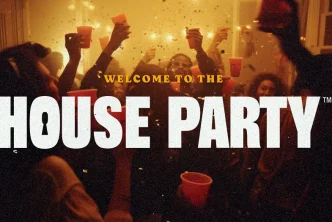In today’s developed world, memes have become a significant part of web culture. Among the various memes that have been around for a long time, one that stands out in the domain of online compulsion is the “Coomer Party” concept. Raised as a representation of compulsive online behavior, the Kumar meme, with stages like coomer.party, has sparked discussions about the dark side of web culture and its effects on people. This article will dig into the origins, influence, and social suggestions of the Coomer Party meme, and investigate the broader implications of compulsive online culture.
The Rise of the Coomer Meme and Coomer Party
The term “kumar” is often used in online spaces to describe individuals who are addicted to or irrationally locked into certain online behaviors, especially sexual substances. Although the term itself can be seen as derogatory, it has become widely recognized in web culture, often used derisively to describe someone who is seen as over-indulging in obscene material or web distractions online.
The concept of “Coomer Party” began to take shape as an extension of this meme, progressing to humorous representations of an online clique or community that reinforces such compulsive behavior. In fact, a “Coomer Party” would be a tongue-in-cheek way to address the growing prevalence of addictive online behavior, especially in communities that revolve around web porn, social media fixation, and comparative delusions.
Stage coomer.party is on the bleeding edge of this meme. It is an online space that capitalizes on the same concept, paying attention to certain web patterns and creating a compelling online engagement light. By creating a perfunctory, meme-driven environment, coomer.party both reflects and exposes the behaviors it mocks, including levels of discussion about computerized practices and their wider implications.
What Is the Coomer Meme?
Before diving into the intricacies of Coomer Party, it’s important to get to the roots of the “Kumar” meme itself. The term “coomer” is derived from the web slang “coom”, a slang term for ejaculate. The meme is commonly used to depict people who are often seen as stuck in compulsive sexual behavior, especially through online substances such as pornography.
Kumar memes often depict these individuals as lacking any other important interface or social engagement, using the character’s exaggerated appearance and weirdness to symbolize someone trapped in an online compulsive cycle. These characters are typically depicted with tired eyes, a disheveled appearance, and a general sense of despair, speaking to a life spent by unwanted online habits.
The Coomer meme has gained significant traction on web forums like 4chan and Reddit, where clients often joke about the pervasive nature of certain advanced addictions. It quickly evolved into a larger commentary on web culture, advertising a happy but fundamental hub where people can drop into top-notch online engagement designs.
Coomer Party: A Meme That Reflects a Larger Issue
While the Kumar meme is undoubtedly funny, the “Coomer Party” concept takes it to a modern level by framing it as an organized, almost celebratory occasion around those who share these compelling tendencies. The meme suggests a gathering of people who perceive their computerized habits as a way of life, shamelessly immersing themselves in a culture that thrives on overstimulation, instant gratification, and advanced distraction.
The Coomer Party meme highlights the growing influence of web culture on personal behavior, highlighting how easy it is for people to become ensnared in the online universe it outlines. It emphasizes the sense of confinement, where social intuition is replaced by computerized usage and the constant interest in pleasure and excitement becomes the irresistible movement in human life.
The coomer.party site itself feeds into this story, allowing clients to investigate and lock in substance consistent with the meme’s message. Although it is commonly derided, the stage considers the ways in which people in developed spaces can be misplaced, unable to break free from compulsive behaviors that affect their well-being.
The Effects of Compulsive Online Culture
The Coomer meme, and by extension Coomer Party, has sparked significant discussion around the psychological and social implications of compulsive online behavior. In many ways, it serves as a warning against the threat of advanced use almost unchecked, highlighting the dangers associated with online practices, particularly those related to erotica, social media and gaming.
1. Psychological Effects of Online Addiction
Compulsive engagement with the web, through maximum consumption of conspicuous entertainment, looking at social media or indeed gaming, can lead to a number of psychological problems. Thoughts revealed that web abuse can lead to high levels of stress, discomfort and sadness. The need to constantly seek out addictive substances for stimulation creates a cycle of dependency, where people feel an overwhelming urge to lock in with online platforms.
The Kumar meme taps into this problem by exaggerating the behavior of people who drop into this addictive design. In the case of Coomer Party, the meme suggests that these people are not aware of their obligations but have accepted them as part of their character. This normalization of habits can be disturbing, because it reinforces the thought that such behaviors are safe, when in fact, they can have significant negative effects on mental health.
2. Social Isolation and Isolation
One of the most troubling effects of compulsive online behavior is social isolation. As people become more immersed in online content, they often withdraw from real-life intelligence and connection. The Coomer meme often portrays these people as disconnected, focused exclusively on their online tendencies or rather than locked in with the world around them.
This isolation can lead to an assortment of negative consequences. Individuals may begin to experience feelings of lethargy, depression, and aimlessness. Also, when social competence and passionate associations are dismissed in favor of online generosity, the ability to frame meaningful connections can be severely impaired.
3. Effect on physical health
In addition to its psychological and social effects, compulsive online behavior can also affect physical well-being. The passive nature of web habits, combined with the overexcitement that routinely accompanies peak screen time, can lead to a proliferation of health problems such as eye strain, slouchy posture, and disturbed sleep patterns. Also, constant engagement with stimulants can interfere with the body’s characteristic rhythms, making it difficult for people to maintain good habits or routines.
The Coomer Party meme highlights this physical damage by showing characters lazy, unwanted, and cut off from any kind of profitable movement. This overstated depiction serves as an update on how these behaviors can affect both the mind and body.
4. Part of moment gratification
Another major issue highlighted by the Kumar meme is the culture of instant gratification that invades online spaces. With the rise of social media, spilling stages, and clear websites, people have been conditioned to expect instant fulfillment at the touch of a button. This culture of consistent gratification contributes to the compulsive cycle, in which clients endlessly seek out unused substances to keep themselves engaged or excited.
The Coomer Party meme takes the gratification of the moment to an extreme, suggesting that those who lock into this behavior are forever stuck in a cycle of endless provocation. This commentary resonates with the real-world problem of how computerized stages, outlined to retain clients, often abuse this need for momentary pleasure, leading to negative long-term consequences.
Can the Coomer Meme Be Taken Seriously?
Despite its humorous nature, Kumar meme carries with it a real message which is the impact of online compulsion on mental, physical and social well-being. Whereas Coomer Party is routinely portrayed in a derisive light, it reflects the exceptionally real battles faced by people struggling with web addiction.
As web culture advances, it is fundamental to recognize the potential harms arising from unchecked online behavior. The Coomer meme, while exaggerated, serves as a reflection of a cautionary tale around the ways in which we lock in with developed spaces and the consequences of overindulgence.
Conclusion
The Coomer Party meme, as part of a larger discussion surrounding compulsive online culture, sheds light on the addictive nature of computerized cutting trends. While over-the-top narratives of web slavery are routinely presented in a humorous, tongue-in-cheek way, it also exceptionally highlights the very real emotional, social and physical consequences that can flow from over-the-top online behavior. Reflecting on the Coomer meme and its related phases like coomer.party, it becomes clear that the web has created the modern avenue for pleasure, entertainment, and social interaction. Regardless, it’s important to be aware of the potential pitfalls of compulsive engagement, guaranteeing that we maintain a strong balance between our online and offline lives. As we move forward to explore the complexities of computerized culture, it is important to address the suggestions of memes like Coomer Party. While they may seem safe at first, they encourage deeper reflection on how web compulsions and compulsive behaviors affect our regular lives.
Read More latest Posts
 Written by
John Smith
Written by
John Smith





